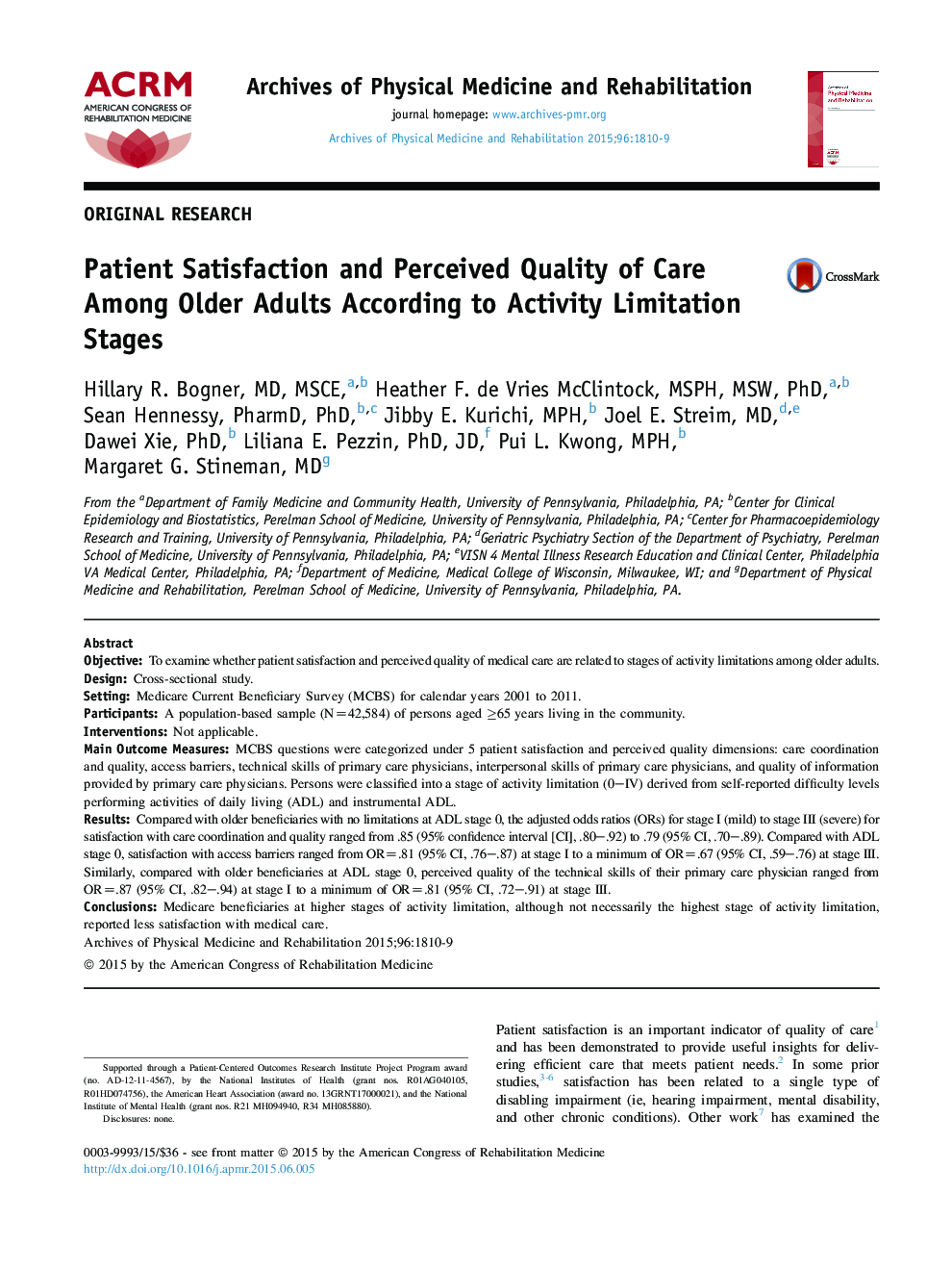| Article ID | Journal | Published Year | Pages | File Type |
|---|---|---|---|---|
| 3448429 | Archives of Physical Medicine and Rehabilitation | 2015 | 10 Pages |
ObjectiveTo examine whether patient satisfaction and perceived quality of medical care are related to stages of activity limitations among older adults.DesignCross-sectional study.SettingMedicare Current Beneficiary Survey (MCBS) for calendar years 2001 to 2011.ParticipantsA population-based sample (N=42,584) of persons aged ≥65 years living in the community.InterventionsNot applicable.Main Outcome MeasuresMCBS questions were categorized under 5 patient satisfaction and perceived quality dimensions: care coordination and quality, access barriers, technical skills of primary care physicians, interpersonal skills of primary care physicians, and quality of information provided by primary care physicians. Persons were classified into a stage of activity limitation (0–IV) derived from self-reported difficulty levels performing activities of daily living (ADL) and instrumental ADL.ResultsCompared with older beneficiaries with no limitations at ADL stage 0, the adjusted odds ratios (ORs) for stage I (mild) to stage III (severe) for satisfaction with care coordination and quality ranged from .85 (95% confidence interval [CI], .80–.92) to .79 (95% CI, .70–.89). Compared with ADL stage 0, satisfaction with access barriers ranged from OR=.81 (95% CI, .76–.87) at stage I to a minimum of OR=.67 (95% CI, .59–.76) at stage III. Similarly, compared with older beneficiaries at ADL stage 0, perceived quality of the technical skills of their primary care physician ranged from OR=.87 (95% CI, .82–.94) at stage I to a minimum of OR=.81 (95% CI, .72–.91) at stage III.ConclusionsMedicare beneficiaries at higher stages of activity limitation, although not necessarily the highest stage of activity limitation, reported less satisfaction with medical care.
